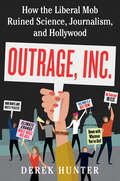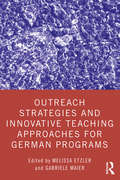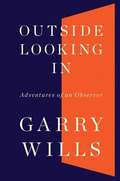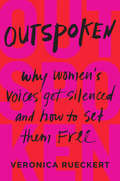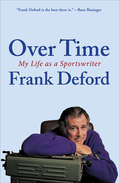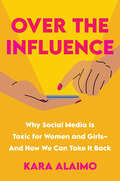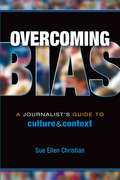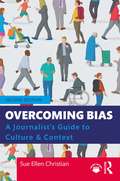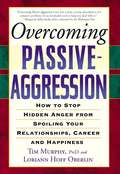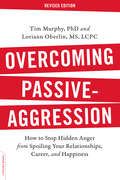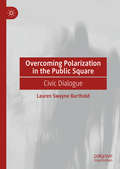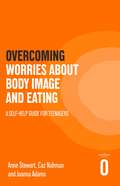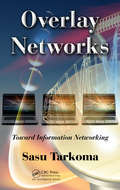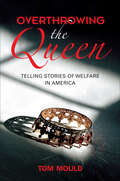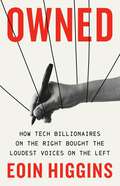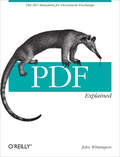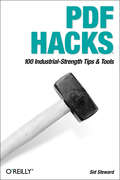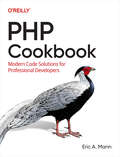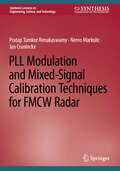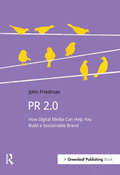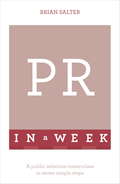- Table View
- List View
Outrage, Inc.: How the Liberal Mob Ruined Science, Journalism, and Hollywood
by Derek Hunter“The irrepressible Derek Hunter defiantly runs toward this out-of-control liberal mob and beats back the bullies with truth.” —Michelle Malkin, #1 New York Times-bestselling authorThere are three institutions in American life run by gatekeepers who have stopped letting in anyone who questions their liberal script: academia, journalism, and pop culture. They use their cult-like groupthink consensus as “proof” that science, reporting, and entertainment will always back up the Democrats. They give their most political members awards, and then say the awards make their liberal beliefs true. Worse, they are using that consensus to pull the country even further to the left, by bullying and silencing dissent from even those they’ve allowed in.Just a few years ago, the media pretended they were honest brokers. Now a CNN segment is seven liberals versus a sacrificial lamb. MSNBC ate their sacrificial lamb. Well, Chris Matthews did. Tired of being forced to believe or else, Derek Hunter exposes the manufactured truths and unwritten commandments of the Establishment. With research and a biting, sarcastic wit, he explains:The growing role of celebrities in the political world, and movies with a “message” that dominate awards season, but rarely the box office.The unquestioning reporting on “studies” that don’t prove what they say they prove.The hidden bias of “fact-checking,” when the media cherry picks which facts they check.Celebrity scientists like Bill Nye and Neil deGrasse Tyson blending liberal activism with pretend expertise outside their fields.Clever, controversial, and convincing, Derek Hunter’s book gets to the root of America’s biggest cultural war lies.“Packed with thorough research, keen insight, and biting humor.” —David Limbaugh, #1 New York Times-bestselling author
Outreach Strategies and Innovative Teaching Approaches for German Programs
by Edited by Melissa Etzler Gabriele MaierOutreach Strategies and Innovative Teaching Approaches for German Programs explores recruitment, curricular design and student retention in modern language instruction by sharing best practices and a wide variety of pragmatic initiatives from teacher-scholars who have been involved in the successful building of German programs. With German programs facing dwindling grant monies as students across the country shift from the liberal arts into career-oriented fields, it is paramount to promote German programs vigorously, to offer courses that reflect and compel students’ interest, to keep students engaged in extracurricular activities and to establish a community of like-minded language learners. The combination of curriculum-based strategies coupled with innovative projects, and extracurricular and outreach activities is intended to serve as a guideline for teachers and scholars alike who are in need of best practices they can use to boost enrollment and attract and retain more students.
Outside Looking In: Adventures of an Observer
by Garry WillsA captivating memoir from the incomparable Garry Wills, "one of the country's most distinguished intellectuals" (The New York Times Book Review) Illuminating and provocative, Outside Looking In is a compelling chronicle of an original thinker at work in remarkable times. With his dazzling style and journalist's eye for detail, Garry Wills brings history to life. Whether writing about the civil rights movement, 1960s protests, or close-up studies of the people who have shaped our world, only he could bring together in one book Barry Goldwater, Daniel Berrigan, Beverly Sills, Richard Nixon, and John Waters. Wills shares, as only the best raconteurs can, stories of the fascinating people he has closely observed during more than fifty years of reporting. .
Outspoken: Why Women's Voices Get Silenced and How to Set Them Free
by Veronica RueckertAre you done with the mansplaining? Have you been interrupted one too many times? Don’t stop talking. Take your voice back.Women’s voices aren’t being heard—at work, at home, in public, and in every facet of their lives. When they speak up, they’re seen as pushy, loud, and too much. When quiet, they’re dismissed as meek and mild. Everywhere they turn, they’re confronted by the assumptions of a male-dominated world. From the Supreme Court to the conference room to the classroom, women are interrupted far more often than their male counterparts. In the lab, researchers found that female executives who speak more often than their peers are rated 14 percent less competent, while male executives who do the same enjoy a 10 percent competency bump. In Outspoken, Veronica Rueckert—a Peabody Award–winning former host at Wisconsin Public Radio, trained opera singer, and communications coach—teaches women to recognize the value of their voices and tap into their inherent power, potential, and capacity for self-expression. Detailing how to communicate in meetings, converse around the dinner table, and dominate political debates, Outspoken provides readers with the tools, guidance, and encouragement they need to learn to love their voices and rise to the obligation to share them with the world. Outspoken is a substantive yet entertaining analysis of why women still haven’t been fully granted the right to speak, and a guide to how we can start changing the culture of silence. Positive, instructive, and supportive, this welcome and much-needed handbook will help reshape the world and make it better for women—and for everyone. It’s time to stop shutting up and start speaking out.
Over Time: My Life as a Sportswriter
by Frank DefordAn unconventional tale as wide-ranging as Deford's remarkable career, in which he has chronicled the heroes and the characters of just about every sport in nearly every medium, from the 1960s until today.
Over Time: My Life as a Sportswriter
by Frank DefordA New York Times bestseller: The “entertaining” memoir by the legendary American sportswriter (Chicago Tribune). Frank Deford joined Sports Illustrated in 1962, and over the following decades became one of the most beloved figures in sports journalism—renowned for everything from his NPR commentaries to his status as a Lite Beer All Star. From the Mad Men-like days of SI in the sixties, to the early NBA, to Deford’s visit to apartheid South Africa with Arthur Ashe, Over Time is packed with intriguing people and stories. Interwoven through his personal history, Deford lovingly traces the entire arc of American sportswriting from the lurid early days of the Police Gazette, through Grantland Rice and Red Smith and on up to ESPN, in a “wildly entertaining” memoir (Booklist, starred review). “Equal doses of self-deprecating humor and anecdotal history of American sports journalism.” —Chicago Tribune “Insightful remembrances of stars like Wilt Chamberlain and Billie Jean King . . . [Deford is] sports writing’s Sinatra.” —San Francisco Chronicle “Endearing . . . imparts a sense of a life well lived and fully enjoyed.” —The New York Times
Over the Influence: Why Social Media is Toxic for Women and Girls - And How We Can Take it Back
by Kara AlaimoThis essential book is a rallying cry for women to recognize and reject the ways social media is being weaponized against us — and instead wield it to empower ourselves.In Over the Influence, communication professor and CNN Opinion contributor Kara Alaimo reveals how social media is affecting every aspect of the lives of women and girls—from our relationships and our parenting to our physical and mental well-being. Over the Influence is a book about what it means to live in the world social media has wrought—whether you&’re constantly connected or have deleted your accounts forever. Alaimo shows why you&’re likely to get fewer followers if you&’re a woman. She explains how fake news is crafted to prey on women&’s vulnerabilities. She reveals why so much of the content we find in our feeds is specifically designed to hold us back. And she explains how social media has made the offline world an uglier place for women.But we can change this. Alaimo offers up brilliant advice for how to get over the influence—how to handle our daughters&’ use of social media, use dating apps to find the partners we&’re looking for, use social networks to bolster our careers, and protect ourselves from sextortionists, catfishers, and trolls. She also explains what we need to demand from lawmakers and tech companies.Over the Influence calls on women to recognize and call out the subtle (and not-so-subtle) sexism and misogyny we find online, reject misinformation that is targeted to us because of our gender, and use our platforms to empower ourselves and other women.
Overcoming Bias: A Journalist's Guide to Culture & Context
by Sue Ellen ChristianJournalists go out of their way to avoid purposeful bias in the news. But there is a more pervasive set of internal biases and flaws in thinking that can lead to unintentional inaccuracies and distortions in news coverage. This engaging book offers a fresh take on reporting without bias, targeting the way that we categorize people, filter information and default to rehearsed ways of thinking. Included throughout are stories and on-target advice from reporters and editors, providing real-world voices and experiences. This advice and guidance is coupled with practical exercises that give readers the chance to apply what they learn. Overcoming Bias will teach readers to edit their thinking for habitual errors, making them more perceptive journalists. It provides a career-long foundation for challenging bias. This is an ideal text for a course on multi-cultural reporting or journalism ethics; it may also be used as a supplement in any course on reporting and writing, as each chapter deals with potential biases that emerge at each stage of the story process, from story ideas to editing.
Overcoming Bias: A Journalist's Guide to Culture & Context
by Sue Ellen ChristianIn this practical and engaging new edition, experienced reporter and teacher Sue Ellen Christian offers a fully updated and fresh take on reporting without bias, examining the way that we categorize people, filter information and default to rehearsed ways of thinking. This book is about biases that affect journalism at every stage of reporting and writing. Included throughout are stories and advice from working reporters and editors, providing real-world voices and experiences, and covering questions of culture, stereotyping, sources, writing, editing, visuals and reflective practice. This advice and guidance is coupled with practical exercises that give readers the chance to apply what they learn. Christian provides a career-long foundation for those looking to edit their thinking and to champion a more inclusive and open-minded approach to coverage of our multicultural society. Offering a concise, readable and highly applicable guide to managing coverage of contemporary social issues, this book is an ideal resource for undergraduate and graduate students of journalism and early career journalists.
Overcoming Passive-Aggression
by Tim Murphy Loriann OberlinIn Overcoming Passive-Aggression, Dr. Tim Murphy and Loriann Hoff Oberlin provide an in-depth look at a topic we've all faced but haven't always recognized: Hidden anger. When people don't express their views and feel compelled to conceal their true beliefs and emotions, behaving in ways that don't match what they honestly think, there can be serious physical and psychological results for everyone involved. For the first time, Murphy and Oberlin offer a clear definition of passive-aggression and show readers not only how to end the behavior, but also how to avoid falling victim to other people's hidden anger. In clear, compassionate language, they cover everything from the childhood origins of the condition to the devastating effect it has on work and personal relationships to the latest research on the subject, and offer practical, proven strategies for the angry person as well as the individual who finds himself the target of someone else's passive-aggression.
Overcoming Passive-Aggression
by Tim Murphy Loriann OberlinIn "Overcoming Passive-Aggression, " Dr. Tim Murphy and Loriann Hoff Oberlin provide an in-depth look at a topic we've all faced but haven't always recognized: Hidden anger. When people don't express their views and feel compelled to conceal their true beliefs and emotions, behaving in ways that don't match what they honestly think, there can be serious physical and psychological results for everyone involved. For the first time, Murphy and Oberlin offer a clear definition of passive-aggression and show readers not only how to end the behavior, but also how to avoid falling victim to other people's hidden anger. In clear, compassionate language, they cover everything from the childhood origins of the condition to the devastating effect it has on work and personal relationships to the latest research on the subject, and offer practical, proven strategies for the angry person as well as the individual who finds himself the target of someone else's passive-aggression.
Overcoming Passive-Aggression, Revised Edition: How to Stop Hidden Anger from Spoiling Your Relationships, Career, and Happiness
by Tim Murphy Loriann OberlinA guide to avoiding the pitfalls of indirect communication and hidden hostility, now revised and updated to address problems of new technology and when to seek professional help.
Overcoming Polarization in the Public Square: Civic Dialogue
by Lauren Swayne BartholdThis book describes how civic dialogue can serve as an antidote to a polarized public square. It argues that when pervasive polarization renders rational and fact-based argumentation ineffective, we first need to engage in a way that builds trust. Civic dialogue is a form of structured discourse that utilizes first-person narratives in order to promote trust, openness, and mutual understanding. By creating a dialogic structure that encourages listening and reflection, particularities and differences about fraught identities can be expressed in such a way that leads to the possibility of connecting through our fundamental, shared, and deeply felt humanity. Drawing on Plato, Buber, Gadamer, Dewey, cognitive bias research, as well as the work of dialogue practitioners, Lauren Swayne Barthold provides a sustained defense of civic dialogue as an effective strategy for avoiding futile political arguments and for creating pluralistic democratic communities.
Overcoming Worries About Body Image and Eating: A Self-help Guide for Teenagers (Helping Your Child)
by Anne Stewart Caz Nahman Joanna AdamsMost teenagers worry about their body and appearance at some point, and some may try to alter their eating in order to change their weight or shape. If you are spending a lot of time worrying about how you look or what you are eating, it can become overwhelming and have a big impact on your life. The aim of this book is to help you to understand a bit more about these worries, what you can do about them and, most importantly, how you can develop a healthy relationship with your body and with food. If these worries take hold, there is a risk of developing an eating disorder or becoming depressed. Eating disorders can have a huge and negative impact on your physical health, your emotional wellbeing, your relationships and social life. They can take control of your mind and body, which makes it difficult to feel motivated to recover, and it can be a long and difficult journey to get back on track, so it's better to tackle these worries early on. Written by clinicians with many years of experience working in specialist eating disorder services for children and adolescents, this book follows an approach called cognitive behavioural therapy (CBT), which is a really useful way of helping us to make sense of our experiences and overcome the difficulties that we face. CBT is an evidence-based approach, which means that lots of research has been done to evaluate it and show that it can be helpful. The book includes help and support on: · Adolescent development, how we make sense of our experiences, healthy eating and how to look after yourself during the teenage years. · How you can stop body image and eating difficulties taking hold including ideas for feeling good about yourself, dealing with stress and managing social media. There is a chapter which focuses on issues for boys/young men. · How to get help from family, friends or professionals if you are struggling. There is also a chapter for parents/carers and families with suggestions on how they can help. Overcoming for Teenagers is a series to support young people through common mental health issues during adolescence, using scientific techniques that have been proven to work.Series editors: Associate Professor Polly Waite and Emeritus Professor Peter Cooper
Overcoming Worries About Body Image and Eating: A Self-help Guide for Teenagers (Helping Your Child)
by Anne Stewart Caz Nahman Joanna AdamsMost teenagers worry about their body and appearance at some point, and some may try to alter their eating in order to change their weight or shape. If you are spending a lot of time worrying about how you look or what you are eating, it can become overwhelming and have a big impact on your life. The aim of this book is to help you to understand a bit more about these worries, what you can do about them and, most importantly, how you can develop a healthy relationship with your body and with food. If these worries take hold, there is a risk of developing an eating disorder or becoming depressed. Eating disorders can have a huge and negative impact on your physical health, your emotional wellbeing, your relationships and social life. They can take control of your mind and body, which makes it difficult to feel motivated to recover, and it can be a long and difficult journey to get back on track, so it's better to tackle these worries early on. Written by clinicians with many years of experience working in specialist eating disorder services for children and adolescents, this book follows an approach called cognitive behavioural therapy (CBT), which is a really useful way of helping us to make sense of our experiences and overcome the difficulties that we face. CBT is an evidence-based approach, which means that lots of research has been done to evaluate it and show that it can be helpful. The book includes help and support on: · Adolescent development, how we make sense of our experiences, healthy eating and how to look after yourself during the teenage years. · How you can stop body image and eating difficulties taking hold including ideas for feeling good about yourself, dealing with stress and managing social media. There is a chapter which focuses on issues for boys/young men. · How to get help from family, friends or professionals if you are struggling. There is also a chapter for parents/carers and families with suggestions on how they can help. Overcoming for Teenagers is a series to support young people through common mental health issues during adolescence, using scientific techniques that have been proven to work.Series editors: Associate Professor Polly Waite and Emeritus Professor Peter Cooper
Overlay Networks: Toward Information Networking.
by Sasu TarkomaWith their ability to solve problems in massive information distribution and processing, while keeping scaling costs low, overlay systems represent a rapidly growing area of R&D with important implications for the evolution of Internet architecture. Inspired by the author's articles on content based routing, Overlay Networks: Toward Information
Overthrowing the Queen: Telling Stories of Welfare in America
by Tom MouldExamining the popular myths and unseen realities of welfare, this study reveals the political power of folklore and the possibilities of storytelling. In 1976, Ronald Reagan hit the campaign trail with an extraordinary account of a woman committing massive welfare fraud. The story caught fire and a devastating symbol of the misuse government programs was born: the Welfare Queen.Overthrowing the Queen examines these legends of fraud and abuse while bringing to light personal stories of hardship and hope told by cashiers, bus drivers, and business owners; politicians and aid providers; and, most important, aid recipients themselves. Together these stories reveal how the seemingly innocent act of storytelling can create powerful stereotypes that shape public policy. They also showcase redemptive counter-narratives that offer hope for a more accurate and empathetic view of poverty in America today.Overthrowing the Queen tackles perceptions of welfare recipients while proposing new approaches to the study of oral narrative that extend far beyond the study of welfare, poverty, and social justice.
Owned: How Tech Billionaires on the Right Bought the Loudest Voices on the Left
by Eoin HigginsA &“devastating&” (Nation) examination of how a cabal of tech-billionaires is colluding with once-idealistic journalists to create an entirely new media landscapeOwned is the story of the underreported and growing collusion between new wealth and new journalism. In recent years, right-wing billionaires like Elon Musk, Peter Thiel, Marc Andreessen, and David Sacks have turned to media as their next investment and source of influence. Their cronies are Glenn Greenwald and Matt Taibbi—once known as idealistic and left-leaning voices, now beneficiaries of Silicon Valley largesse. Together, this new alliance aims to exploit the failings of traditional journalism and undermine the very idea of an independent and fact-based fourth estate.Owned examines how this shift has allowed spectacularly wealthy reactionaries to pursue their ultimate goal of censoring critics so to further their own business interests—and personal vendettas—entirely unimpeded while also advancing a toxic and antidemocratic ideology. A rich history of the decades-long rise of this new right-wing alternative media takeover, Owned follows the money, names names, and offers a chilling portrait of a future social media and news landscape. It is a biting exposé of journalistic greed, tech-billionaire ambition, and a lament for a disappearing free press.
PBX Security and Forensics
by I. I. AndroulidakisPBX Security and Forensics presents readers with theoretical and practical background for Private Branch Exchanges (PBXs). PBX is privately owned equipment that serve the communication needs of a private or public entity making connections among internal telephones and linking them to other users in the Public Switched Telephone Network (PSTN). Targeted damages and attacks in PBXs can cause significant instability and problems. The author provides examples of these threats and how to prevent against such attacks in the future. Readers will also be shown where to find forensics data and how to conduct relevant analysis.
PDF Explained: The ISO Standard for Document Exchange
by John WhitingtonAt last, here’s an approachable introduction to the widely used Portable Document Format. PDFs are everywhere, both online and in printed form, but few people take advantage of the useful features or grasp the nuances of this format. This concise book provides a hands-on tour of the world’s leading page-description language for programmers, power users, and professionals in the search, electronic publishing, and printing industries. Illustrated with lots of examples, this book is the documentation you need to fully understand PDF.Build a simple PDF file from scratch in a text editor Learn the layout and content of a PDF file, as well as the syntax of its objectsExamine the logical structure of PDF objects, and learn how pages and their resources are arranged into a documentCreate vector graphics and raster images in PDF, and deal with transparency, color spaces, and patternsExplore PDF operators for building and showing text stringsGet up to speed on bookmarks, metadata, hyperlinks, annotations, and file attachmentsLearn how encryption and document permissions work in PDFUse the pdftk program to process PDF files from the command line
PDF Hacks: 100 Industrial-Strength Tips & Tools
by Sid StewardPDF--to most of the world it stands for that rather tiresome format used for documents downloaded from the web. Slow to load and slower to print, hopelessly unsearchable, and all but impossible to cut and paste from, the Portable Document Format doesn't inspire much affection in the average user. But PDFs done right is another story. Those who know the ins and outs of this format know that it can be much more than electronic paper. Flexible, compact, interactive, and even searchable, PDF is the ideal way to present content across multiple platforms.PDF Hacks unveils the true promise of Portable Document Format, going way beyond the usual PDF as paged output mechanism. PDF expert Sid Steward draws from his years of analyzing, extending, authoring, and embellishing PDF documents to present 100 clever hacks--tools, tips, quick-and-dirty or not-so-obvious solutions to common problems. PDF Hacks will show you how to create PDF documents that are far more powerful than simple representations of paper pages. The hacks in the book cover the full range of PDF functionality, from the simple to the more complex, including generating, manipulating, annotating, and consuming PDF information. You'll learn how to manage content in PDF, navigate it, and reuse it as necessary. Far more than another guide to Adobe Acrobat, the book covers a variety of readily available tools for generating, deploying, and editing PDF. The little-known tips and tricks in this book are ideal for anyone who works with PDF on a regular basis, including web developers, pre-press users, forms creators, and those who generate PDF for distribution. Whether you want to fine-tune and debug your existing PDF documents or explore the full potential the format offers, PDF Hacks will turn you into a PDF power user.
PHP Cookbook: Modern Code Solutions for Professional Developers
by Eric A. MannIf you're a PHP developer looking for proven solutions to common problems, this cookbook provides code recipes to help you resolve numerous scenarios. By leveraging modern versions of PHP through version 8.1, these self-contained recipes provide fully realized solutions that can help you solve similar problems in your day-to-day work.Whether you're new to development or merely new to PHP, these recipes will help you unpack the most powerful features of this programming language. Author Eric Mann, a regular contributor to php[architec magazine, frequently makes presentations on software architecture and has built scalable projects for startups and Fortune 500 companies alike.Learn the type system of modern PHPBuild efficient applications composed of functions and objectsUnderstand key concepts such as encryption, error handling, debugging, and performance tuningExplore the PHP package/extension ecosystemLearn how to build basic web and basic command-line applicationsWork securely with files on a machine, both encrypted and in plain text
PLL Modulation and Mixed-Signal Calibration Techniques for FMCW Radar (Synthesis Lectures on Engineering, Science, and Technology)
by Jan Craninckx Nereo Markulic Pratap Tumkur RenukaswamyThis book covers analysis and design of PLL-based frequency modulators, used in the hearth of modern FMCW radars. The desired radar performance targets are translated into the modulator specifications first. The authors then focus on describing the optimal modulator architecture, with special care given to core building blocks of the system. The central analog building block described is a novel charge integrating-based chirp generator, which breaks limits of similar art in the field where performance (noise, area) is typically traded for power. The book then continues to describe power-efficient, mixed-signal background calibration engine implementation, which when applied in context of the presented system, ensures pristine linearity of the generated chirps. The detailed design guide shows how robust duty-cycling can be enabled, to ensure low-power consumption of the system, without compromise in radar performance. A complete overview of all circuit-level building blocks is provided, to ensure that readers can tackle every aspect of the system. Finally, the book covers description of a rigorous chirp-linearity and phase-noise performance characterization methodology, critical for evaluation of radar system performance metrics. This book provides insightful design guidelines for DTC-based fractional-N PLL synthesizers and QDAC-based FMCW frequency modulators for both academic researchers and industry IC design engineers.
PR 2.0: How Digital Media Can Help You Build a Sustainable Brand (Doshorts Ser.)
by John FriedmanDigital media offer many of the same characteristics – immediacy, transparency and interactivity – that make one-to-one the most effective form of communication. And yet many organizations do not fully embrace them. They simultaneously underestimate and fear the power of digital communications. And yet these tools, when used strategically, can be an effective part of your communications plan.PR 2.0 will help you: 1. understand how the increasing emphasis on transparency driven by corporate responsibility has changed the ways that effective organizations communicate with their stakeholders; 2. develop a communications plan for your organization that reaches, and engages, the right stakeholders, using the most appropriate tools and channels; 3. demonstrate the value and “sell” the use of digital media to skeptical internal stakeholders, including in the c-suite, as part of your mission-advancing communications plan. You can make the most of the irrevocable changes in the way people create, share, receive, judge and interact with information. This book offers real-world examples and practical tools to help your organization to live its values and effectively engage with those most essential to your success.
PR In A Week: A Public Relations Masterclass In Seven Simple Steps
by Brian SalterBrilliant PR just got easierYou are about to discover everything you need to know about Public Relations. PR is the practice of conveying messages to the public with the intention of changing the public's actions by influencing their opinions. By targeting different audiences with different messages to achieve an overall goal, PR practitioners can achieve widespread opinion and behavioural change.Communications is seen as being a key element in business, with PR experts increasingly called on to advise senior management on appropriate communications strategies, before decisions are made, rather than being called on to defend them after they have been made. But PR is not just for self-conscious organizations. If you are looking for a job or an in-house promotion; or if you are trying to publicize a fundraiser for your local charity; if you're trying to advance a cause, or you want others to appreciate your point of view, you need your voice to be heard.Nowadays there is a veritable plethora of communication channels available, ranging from traditional newspapers and magazines to online outlets including ezines, social networking sites and blogs. Some of these are good in some situations, but hopeless in others. Throughout this book we will be concentrating on how we can effect the flow of information and how we can achieve the desired mindset change in our target audiences.- Sunday: Who needs PR- Monday: External audiences- Tuesday: Dealing with the media- Wednesday: Social Media- Thursday: Practical pointers for powerful press releases- Friday: Marketing communications- Saturday: Internal PR
